10 Best API Management Tools for Enterprises in 2025
This guide provides an in-depth look at the top 10 API management tools tailored for enterprises, helping administrators choose solutions that meet their specific requirements.
In today's enterprise landscape, managing APIs effectively is critical for seamless integration, communication, and operational efficiency across diverse systems. The right API management tool can ensure enhanced security, scalability, and streamlined operations for large-scale environments.
This guide provides an in-depth look at the top 10 API management tools tailored for enterprises, helping administrators choose solutions that meet their specific requirements.
What Are API Management Tools for Enterprises?
API management tools are platforms designed to help organizations oversee the entire lifecycle of their APIs—from design and development to deployment, monitoring, and eventual retirement. These tools centralize API management processes and often include a range of features such as:
- API development and design capabilities
- Comprehensive security controls and access management
- Analytics and monitoring for performance and usage tracking
- Developer portals for easier onboarding and collaboration
By adopting API management tools, enterprises can create a consistent, secure, and scalable API ecosystem. These solutions also improve the developer experience, enabling faster delivery of digital services while reducing operational risks.
Key Components of API Management
API management solutions typically consist of the following key components:
- API Gateway: Serves as the entry point for API calls. It manages traffic, enforces security policies, and supports protocol translation.
- Developer Portal: A centralized platform for developers to access API documentation, discover APIs, and obtain credentials like API keys.
- Analytics and Monitoring: Provides insights into API performance, usage patterns, error tracking, and optimization opportunities.
- Security and Access Control: Ensures APIs are protected through authentication, authorization, encryption, and other mechanisms.
- Lifecycle Management: Enables design, testing, deployment, version control, and deprecation of APIs in a structured manner.
- Integration and Orchestration: Facilitates connectivity between APIs and backend systems, creating composite services for more complex workflows.
Benefits of API Management Tools for Enterprises
- Enhanced Security: Protect sensitive data with advanced authentication, encryption, and threat management features.
- Improved Scalability: Handle growing traffic and APIs without compromising performance.
- Streamlined Developer Experience: Self-service portals and robust documentation accelerate adoption and reduce onboarding challenges.
- Operational Insights: Analytics help identify optimization opportunities and provide visibility into API-driven business value.
- Faster Product Delivery: Simplified processes for developing and deploying APIs allow for quicker time-to-market.
- Consistency and Governance: Centralized management promotes standardization and adherence to best practices across the API ecosystem.
- Cost Reductions: Optimize API performance and reuse existing assets to cut down on development and maintenance expenses.
- Regulatory Compliance: Built-in tools to ensure adherence to industry-specific regulations and data protection standards.
Top 10 API Management Tools for Enterprises
1. EchoAPI
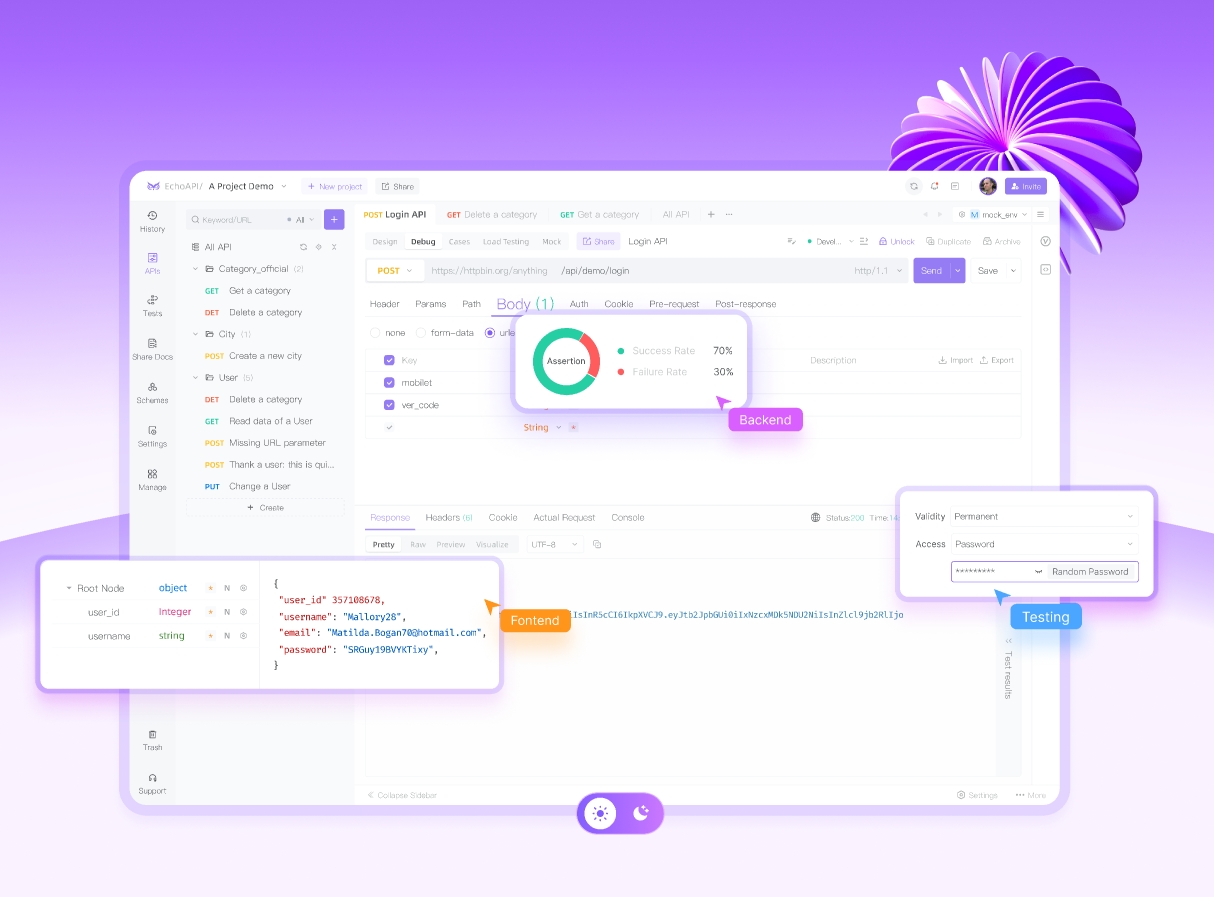
Overview: EchoAPI is a comprehensive platform designed for managing the entire API lifecycle—designing, debugging, documenting, and testing. It offers tools for seamless collaboration and real-time monitoring.
Key Features:
- Collaborative API design
- Built-in mock servers
- Automated API testing and debugging tools
- Integration with version control systems
Pros:
- User-friendly interface for teams with varying technical skills
- Comprehensive features for lifecycle management
- Strong team collaboration features
Cons:
- Relatively new when compared to established competitors
- May require more effort to onboard for larger teams
Pricing: Free plan available for small teams; paid plans start at $10/user/month.
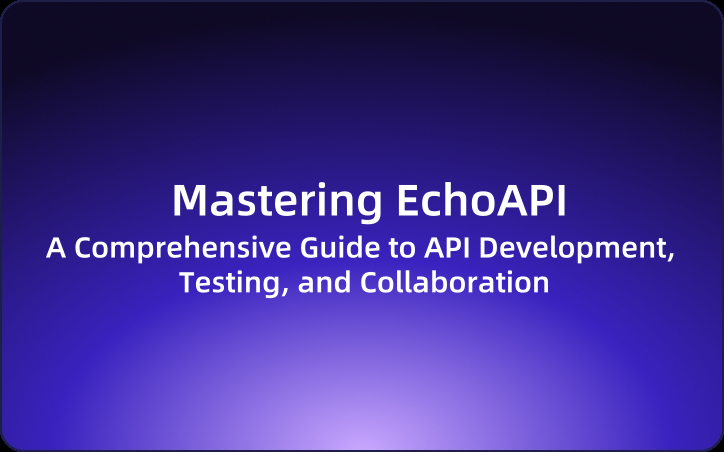
2. Microsoft Azure API Management
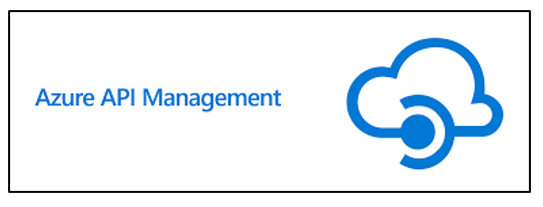
Overview: Part of the Azure ecosystem, this API management tool provides powerful cloud-based analytics, security, and scaling solutions. It is especially suitable for organizations already invested in Microsoft products.
Key Features:
- Centralized API gateway for traffic management
- Self-service developer portal for onboarding
- Advanced analytics and real-time monitoring
- Seamless Azure Active Directory integration for security
Pros:
- Exceptional compatibility with other Azure services
- Built-in compliance with industry standards
- Robust scalability options for large enterprises
Cons:
- Complex setup process for smaller teams
- Pricing can increase with higher cloud usage
Pricing: Based on usage tiers. Contact Microsoft for enterprise pricing.
3. Kong Konnect
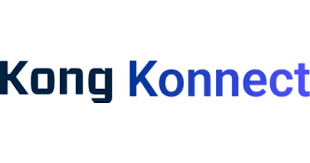
Overview: Kong Konnect provides high-performance API gateways and enterprise-grade management features. Its flexibility supports hybrid, on-premises, and cloud-native architectures.
Key Features:
- API insights and analytics
- Decentralized API management
- Scalable security framework
- Ecosystem of plugins and integrations
Pros:
- Highly performant and flexible deployment options
- Strong support for both modern and legacy architectures
- Large open-source community
Cons:
- Steeper learning curve for non-technical administrators
- Advanced features require paid plans
Pricing: Free trial available; enterprise pricing starts at $500 in credits for 30 days.
4. Postman API Platform

Overview: Known initially as an API testing tool, Postman now supports the entire API lifecycle with features for design, collaboration, testing, and monitoring.
Key Features:
- Intuitive testing client
- Mock server capabilities
- Real-time monitoring and debugging
- Seamless collaboration tools
Pros:
- Widely used and supported by large developer communities
- Simple user interface with rich learning resources
- Ideal for smaller teams and new developers
Cons:
- Lacks advanced API gateway features
- Costs increase with team size
Pricing: Free for individuals; paid plans start at $12/user/month.
5. SwaggerHub
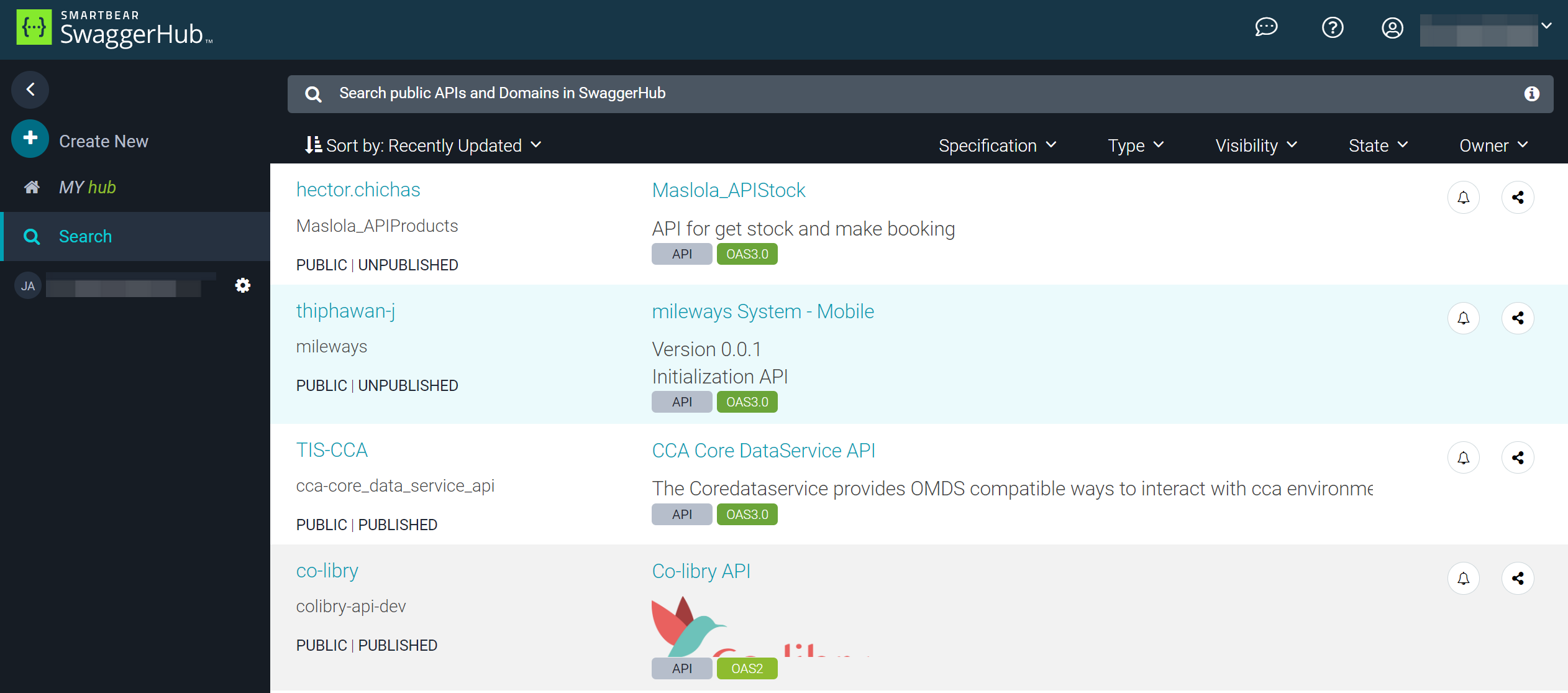
Overview: Built for OpenAPI standards, SwaggerHub facilitates API design and documentation. It simplifies collaboration and enhances API standardization.
Key Features:
- OpenAPI support
- Collaborative API editor
- Automated documentation generation
- Mock servers for testing
Pros:
- Excellent tools for API design and documentation
- Easy-to-use interface with version control
Cons:
- Focused on design rather than full API lifecycle management
- May require integrations for advanced features
Pricing: Free for public APIs; paid plans start at $90/month.
6. Apigee API Management Platform
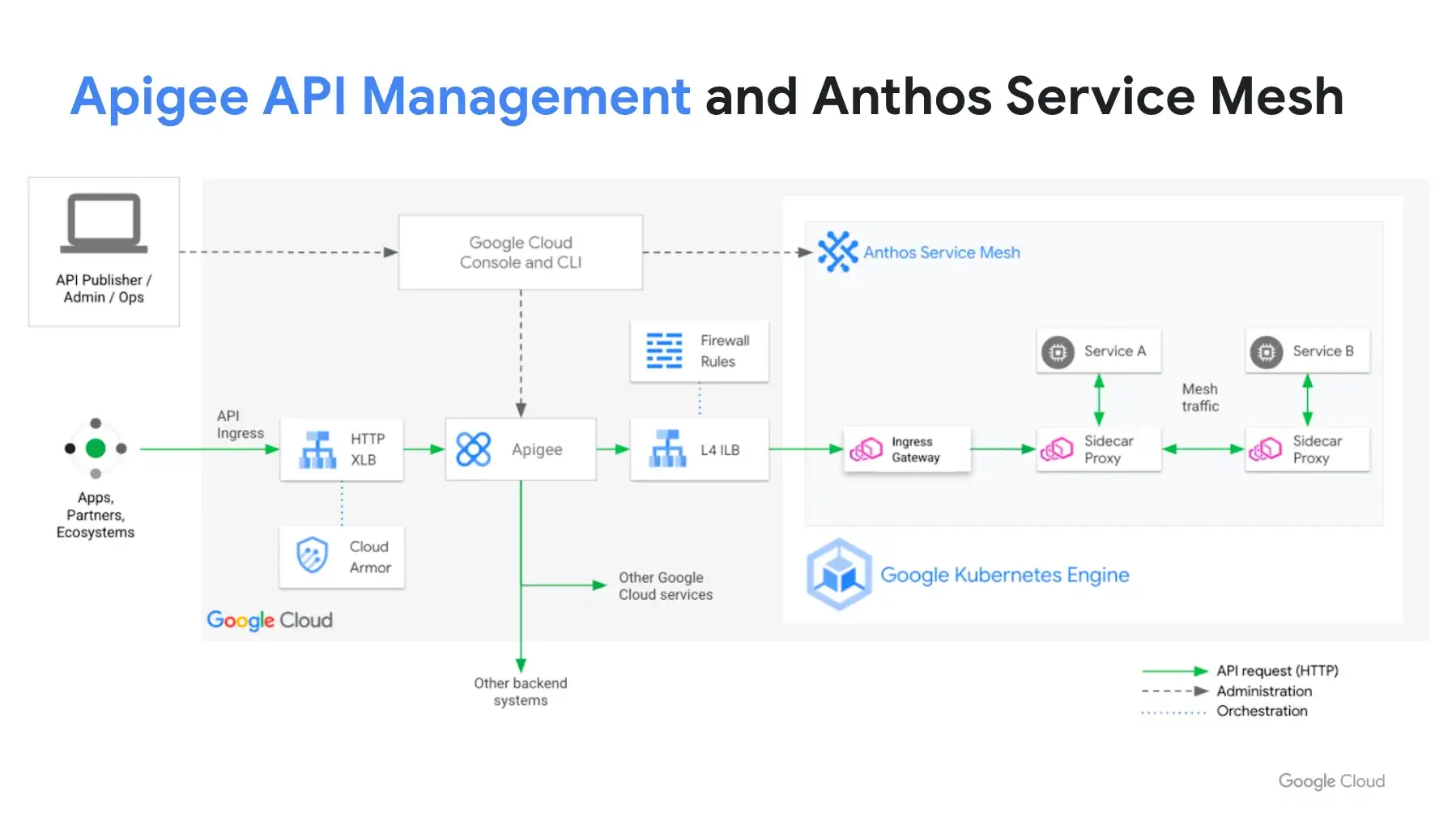
Overview: A product of Google Cloud, Apigee is an enterprise-grade API management platform designed for large-scale organizations. It provides a full suite of tools for creating, securing, and monitoring APIs. Apigee excels in hybrid deployment scenarios and is ideal for companies leveraging Google Cloud solutions.
Key Features:
- Advanced monitoring and analytics tools for tracking API performance and usage
- AI-powered security features to detect and prevent threats
- Developer portal with monetization capabilities
- Hybrid and multi-cloud deployment options
- API proxy capabilities for integrating legacy systems
Pros:
- Seamless integration with Google Cloud products
- Rich analytics and reporting features
- Scalable and robust design for large enterprises
Cons:
- Complex setup and high learning curve
- Expensive for smaller organizations or limited API ecosystems
Pricing: Apigee offers multiple pricing tiers based on API call volume and feature requirements. Contact Google Cloud for detailed pricing.
7. Dell Boomi

Overview: Dell Boomi is an iPaaS (Integration Platform as a Service) solution that includes comprehensive API management capabilities. It focuses on connecting on-premises and cloud applications while providing tools for API lifecycle management, integration, and master data management.
Key Features:
- Drag-and-drop API design tools
- Low-code development environment
- Full API lifecycle management
- Data mapping and transformation for more seamless integration
- API gateway with high-security standards
Pros:
- Comprehensive integration capabilities for cloud and on-premises
- User-friendly low-code environment
- Ideal for businesses requiring data synchronization across systems
Cons:
- Overkill for organizations focused solely on API management
- Pricing can be steep for startups or small-scale deployments
Pricing: Custom pricing is available depending on the size and needs of the organization. Contact Dell Boomi for details.
8. IBM API Connect
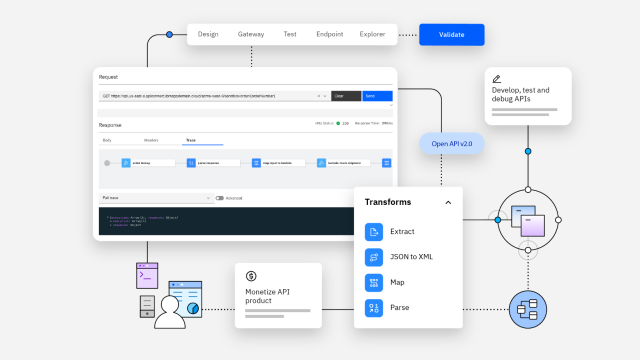
Overview: IBM API Connect offers an enterprise-grade solution for creating, managing, and securing APIs. It supports both on-premises and cloud environments, making it a suitable option for hybrid deployments. A key advantage is its integration with IBM’s extensive software ecosystem.
Key Features:
- Complete API lifecycle management
- Built-in threat protection and policy enforcement
- Developer portal with robust self-service tools
- Support for both public and private deployment
- Integration with other IBM cloud services and analytics tools
Pros:
- Strong security features with enterprise-grade compliance
- Ideal for organizations already invested in IBM solutions
- Versatile deployment options accommodate complex infrastructures
Cons:
- Complex implementation process and high initial setup costs
- Primarily beneficial for existing IBM users
Pricing: Flexible pricing models available based on API usage, deployment preferences, and additional services. Contact IBM for specific details.
9. MuleSoft Anypoint Platform
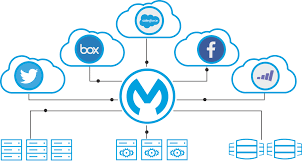
Overview: MuleSoft’s Anypoint Platform specializes in integrating applications, data, and devices across cloud and on-premises environments. It is known for its strong API lifecycle management and enables enterprises to connect systems seamlessly.
Key Features:
- Tools for API design, implementation, and monitoring
- Pre-built connectors and templates for integration
- API gateway with advanced security features
- Unified platform for APIs, data, and application synchronization
- Developer portal for API discovery and collaboration
Pros:
- Industry-leading integration capabilities alongside API management
- Scalable solution tailored for large organizations
- Pre-built connectors reduce development time
Cons:
- Resource-intensive implementation and maintenance
- May not be cost-effective for smaller teams or startups
Pricing: MuleSoft provides customized pricing based on the client’s needs, including API volume, usage, and integration requirements. Contact MuleSoft for additional details.
10. Gravitee
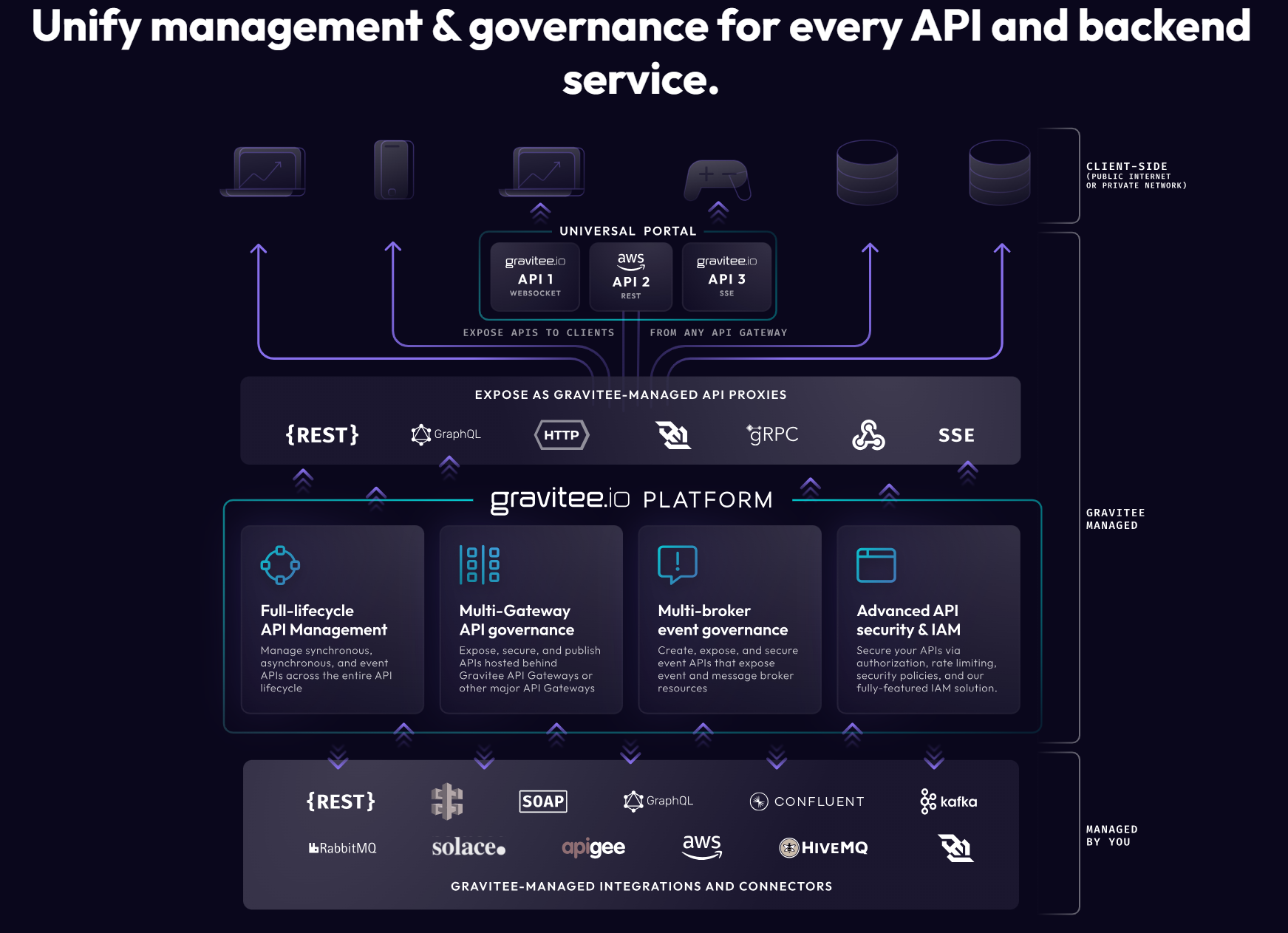
Overview: Gravitee is an open-source API management platform that emphasizes flexibility in both API management and identity management. Its modular architecture makes it uniquely suited for businesses that prefer open-source solutions with commercial-grade support options.
Key Features:
- API gateway with traffic management
- Integrated developer portal for API discovery and documentation
- Identity and access management tools
- Monitoring and analytics dashboards
- Multi-protocol support (e.g., REST, WebSocket, gRPC)
Pros:
- Open-source core with the option for enterprise support
- Flexible deployment options (on-premises, cloud, hybrid)
- Strong features for managing both API and user access
Cons:
- Smaller user community compared to major competitors
- Advanced features may require enterprise subscription
Pricing: Gravitee offers a free open-source version. Enterprise pricing is available upon request, providing additional features and support.
Wrapping Up: Finding the Right Tool for Your Enterprise
Selecting the right API management tool for your enterprise depends on multiple factors—your organization’s existing technology stack, business objectives, budget, and long-term strategy. Large organizations may find planned flexibility and scalability in solutions like MuleSoft and Apigee, while smaller teams might favor user-friendly platforms such as Postman and SwaggerHub.
Take time to evaluate the features, pricing, and compatibility of each tool carefully. With the right API management tool in place, your team can unlock better security, faster integration, and seamless digital transformation that meets your customers' and organizations' demands.
Still unsure which solution fits your needs? Start with trials from tools like EchoAPI or Kong Konnect to discover how they can streamline your API lifecycle.
Conclusion
Enterprises seeking to optimize their API ecosystems must choose tools that align with their technical, operational, and strategic goals. Whether prioritizing security, collaboration, or performance, the right API management tool can elevate the efficiency and scalability of an organization's digital infrastructure. Select a solution that fits your business needs, whether it's the flexible options offered by Kong Konnect, the user-friendly interface of Postman, or the robust analytics of Microsoft Azure API Management.




 EchoAPI for VS Code
EchoAPI for VS Code

 EchoAPI for IntelliJ IDEA
EchoAPI for IntelliJ IDEA

 EchoAPl-Interceptor
EchoAPl-Interceptor

 EchoAPl CLI
EchoAPl CLI
 EchoAPI Client
EchoAPI Client API Design
API Design
 API Debug
API Debug
 API Documentation
API Documentation
 Mock Server
Mock Server








